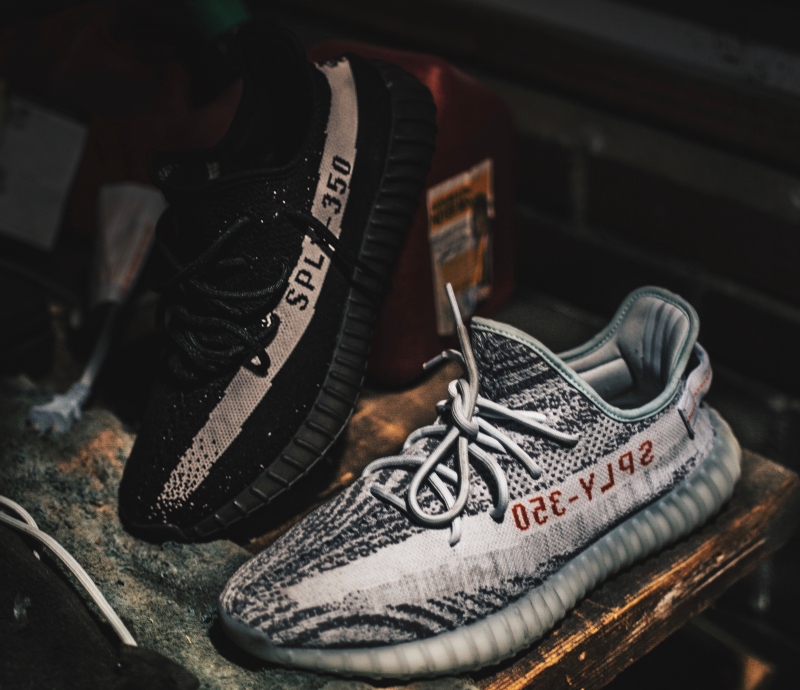Top 10 Most Interesting Global Gray Markets
Even if we don't know where to look, everyone is at least somewhat aware of the black market, which has long been a sort of thrilling, taboo topic. These days, ... read more...the most common place to find black market goods is online. Black market goods are often stolen or counterfeit goods. On rare occasions, you can stumble onto a real-life black market at a flea market or in a nation with less stringent rules about what can be sold and by whom. What about gray marketplaces, though? Gray markets offer products through unorthodox and unapproved ways. For instance, there is a "grey market" for vehicles where US drivers can purchase UK versions of vehicles that were never intended for use on North American roads. However, some gray marketplaces are a little stranger than that.
-
The sneaker market is absurdly large. Though understanding size is difficult, use this as an illustration. StockX, an online shop that specialized in reselling sneakers and may operate the world's largest sneaker gray market, was valued at $3.8 billion in 2021. A lot of shoes, that is. How did it get to be so much? Due to the $79 billion global shoe market.
People adore footwear, and sneakers are frequently updated. Initially, there was a market for antique sneakers, which are getting more and more difficult to find as a result of the fact that people wear them all day and cause damage to them. Those that kept theirs discovered they could sell them for a respectable profit.
This sparked the development of the custom sneaker market, in which an ordinary shoe is transformed into something special, perhaps even by a famous person. The price of some shoes can reach the tens of thousands of dollars due to their strong demand.
So how exactly is this a gray market? It's all a gray area, to put it mildly. Of course, the first sale doctrine allows for the subsequent sale of real shoes. But since phony shoes are frequently mixed in, it is challenging for customers to distinguish between the two. The issue of customized shoes is another.
In 2021, when 666 pairs of Nike's "Satan Shoes" were sold, there was uproar. The sneakers were created in association with Lil Nas X and contained human blood. But they were altered Nike Air Max 97s, not "genuine" Nike footwear. They were created without the knowledge or involvement of Nike. But because of the outcry over Nike's demonic Satan sneakers, Nike filed a lawsuit for trademark infringement.
Normally, Nike and other shoe manufacturers don't care about customized versions of their shoes, but the public storm probably compelled Nike to act. The matter was settled. This is the beginning of a shadowy, murky market.
Image by Jordan Hyde via pexels.com 
Image by Melvin Buezo via pexels.com -
A piano may appear to be a somewhat specialized product, with sales that can't even be that high during the best of times. Surprisingly, the piano industry in America is doing reasonably well, with sales of more than $200 million in 2017.
You can spend anywhere between a few hundred dollars and upwards of $10,000 for the piano you want. People who want a piano but don't want to pay a fortune are prepared to look around for decent bargains. The gray market for pianos is a desirable choice.
Gray market pianos frequently originate in Asia, but as Yamaha notes, there are some factors that could pose a difficulty for consumers. The fact that geography matters for pianos is one of the most important and least obvious. They must be correctly manufactured for your climate because they are composed of wood. A piano that warps because your home is too dry for it is the last thing you need. With gray market models, that is what takes place.
Yamaha also expresses worries about the lack of a guarantee and replacement parts, at least from the standpoint of a manufacturer. But it's easy to understand why a discount model sounds appealing when a prospective pianist is gazing at a $5,000 price tag.
Image by Mikhail Nilov via pexels.com 
Image by beyzahzah via pexels.com -
So where do you go when you need a new tractor? Although John Deere has long been a reliable brand, the company's starting price for a new one may be above $17,000. Exists a better choice? That is the gray market in their eyes.
The world over, John Deere tractors are sold. After all, agriculture is a global enterprise. The economy of many nations varied greatly as well. The same or a comparable tractor model can be available for thousands of dollars less abroad. Because of this, purchasing and importing it becomes a desirable option, creating a tiny but wealthy gray market.
Many of these John Deere items were prohibited from being imported in 2004 because, according to John Deere, they weren't made to comply with US safety standards.

Image by Jannis Knorr via pexels.com 
Image by Tabitha Mort via pexels.com -
Cologne and perfume are two of the strangest items that are frequently imitated and sold on grey markets. At budget stores and flea markets, fake scents are practically always present. They frequently even have packaging that resembles that of real scents; they may even utilize the name of the original fragrance while adding "inspired by" or a similar phrase. Additionally, there are some that buy overstock and sell it at a loss. These two are both legitimate gray market goods.
Gray market perfumes are disliked by manufacturers due to both the obvious potential commercial loss from knockoffs as well as the brand damage caused by outdated stock. If your authentic cologne is more than five years old, it may have undergone significant deterioration. Anyone who purchases it will likely receive a fragrance that is not what the maker intended and is mildly offensive. Now that buyer will believe the scent is strange and have a negative view.
Fragrances can be easily purchased abroad at huge reductions and then resold in the US, much like other products. It is clear that manufacturers dislike this. The allure is that scents are frequently astronomically costly. It is astounding to compare a knockoff to the genuine article. Genuine goods can frequently cost tens or even hundreds of times more. Sometimes, but not usually, the quality matches that price. It could also be a markup simply to pay for the name.
Image by Valeria Boltneva via pexels.com 
Image by Mareefe via pexels.com -
M&Ms and Mars bars may be tasty, but that doesn't imply the firm that manufactures them is. When someone trespasses on their property, they take it seriously, as was the case with some candies sold on the black market in Canada.
Due to several laws and regulations, there are limitations on what can be sold and where in the case of candy. Because Kinder Eggs, for example, cannot be marketed officially in the US, there is a gray market for them there. The price is another problem. Because things are frequently less expensive in America than in Canada, one reseller was sued by Mars as a result.
Aizic Ebert was retailing Mars candy in Canada at less money than Canadian retailers were asking for it by purchasing it in the US. Ultimately, Mars Canada sued them and prevailed.

Image by Irina Edilbaeva via pexels.com 
Image by Ylanite Koppens via pexels.com -
Most college students finish the academic year with a stack of books they won't ever open. What better course of action than to sell them so the incoming class of students can make use of them? Publishers claim that's not cool. In the past, they have sued over it as well.
Textbooks for colleges are notoriously expensive. Even worse, you can frequently find the same books elsewhere for a lot less money. One Thai student made duplicates of the books he needed for Cornell at a significant discount from his friends and family in Thailand, shipped them to him, and sold them on eBay for $100,000. Unbelievable, no? He was then sued for $600,000 by the publisher.
The Supreme Court reversed the lower court's decision in favor of the student after the lawsuit initially went in the publisher's favor. The publisher's primary defense was that they were charging more for the books and he was undercutting them; as a result, they demanded to be paid.
Think about reselling an old Prius for twice what you paid for it, only to be sued by Toyota for the whole purchase price because you took advantage of them. The first sale doctrine, which essentially states that once you buy something, you can do whatever you want with it, is what allowed the student to succeed. even if the maker becomes irate.
Image by Tima Miroshnichenko via pexels.com 
Image by Tima Miroshnichenko via pexels.com -
Few things are more depressing than the notion of a gray market for infant formula, but there it is. This one's entire framework is actually very intriguing and raises certain issues for which there are few satisfactory solutions. Specifically, why did this have to occur?
First off, the market for "normal" formula is not there here. Instead, it's a special kind of formula that is frequently only seen in hospitals. It is intended for premature infants who have unique dietary requirements and for whom breastfeeding may not always be an option.
The formula worked effectively for a father of triplets who were delivered via surrogate while the children were in the hospital's NICU. The babies reacted by wailing nonstop all day long when the same formula was not commercially accessible when they returned home.
Their father looked online, exhausted and worried, and discovered a similar formula being sold. in Germany It was natural, and reviews said it produced positive outcomes. Amazingly, the express delivery he had made to the location worked. After eating, the infants relaxed. Why, therefore, was it limited to Germany?
Strangely, this never received a complete response. However, he started importing the formula and eventually became its only US retailer, selling it to parents who were in the same dire straits for formula that was not FDA-approved. The formula is not flawed in any way and is not even dubious. Simply put, it's not American, and since the FDA doesn't accept items from other countries, it isn't FDA-approved. Selling the formula is by definition a gray market, yet it has actually benefitted many babies and spared many sleepless nights. A gray market might not always be a negative thing.
Image by Pavel Danilyuk via pexels.com 
Image by Pavel Danilyuk via pexels.com -
It's uncommon to hear positive things about jail meals. Prison Nutraloaf, a nutrient-dense slab of revolting mystery substance, is one such item that is regularly served as punishment to thousands of prisoners and is universally despised. What then could be so good straight out of jail that ex-cons had to start a gray market to get their hands on it once more? The entire shebang.
These potato chips, produced by Keefe Group, were designed specifically for distribution to penal establishments. The taste is similar to All-Dressed chips, which are sold in Canada. Prisoners adored them, and many were dismayed to discover that they were not available once they were released into "the real world."
A few diligent chip enthusiasts would go to prisons and purchase chips from the commissary. They might then be sold again on eBay. The only issue was that this was plainly a highly ineffective approach to contact them. The gray market was modest in size but strong. In fact, they were so effective that the business ultimately chose to expand the market and make them accessible outside of jails as well.

Image by Ron Lach via pexels.com 
Image by RODNAE Productions via pexels.com -
The simple thought that there might be a market for illegal toilets is evidence of how strongly people desire contraband. What kind of toilet could possibly be prohibited? It's actually easier than you may imagine.
The Energy Policy and Conservation Act was enacted by the US Congress in 1994. The water that goes through toilets is controlled by that law. The maximum amount of water used per flush was 1.6 gallons, which was less than half of what typical toilets consume. Although it was an attempt to conserve water, not everyone endorsed it. Some folks desire toilets that flush with the sound of a shotgun being fired. Others complained that the so-called "energy saving" advantages of the new toilets were pointless because they needed to flush several times. The environment isn't really being saved if you flush three times, is it?
In the US, it was therefore unlawful to sell old-style toilets, but it was not unlawful to own one. Therefore, Americans might drive to Canada, where the toilets were still available, and make purchases there before bringing them back to the United States.
Image by Tim Mossholder via pexels.com 
Image by Hafidz Alifuddin via pexels.com -
These days, video games are a part of one of the biggest and most well-known gray markets in the world. It is understandable that many people would like a piece of the lucrative and enormous gaming sector, which is worth billions of dollars. There is also space for gray market trading of digital codes because the days of needing to insert a cartridge into your Nintendo are long gone.
Here's a possible scenario: On Bobby's 14th birthday, Grandma walks up and gives him Call of Duty. But now that he has a spare CD key, he can download the game as he already owns it. No point in squandering that cash. He has the option of online code sales. A gray market deal would be that.
There are numerous websites online that provide codes for complete games, expansions, in-game treasure, and other things. Since they are obtained from places like Bobby, many of these give codes for a lower price than retail. They receive promotional materials, gaming vouchers, or other gifts. So far, seems legitimate.
The issue is that occasionally someone may use a stolen card to purchase game guys and then sell the codes on a reseller website. Once the codes are discovered, game developers like EA will disable them. What occurs to the customer, who didn't even steal anything, then? They are usually out of luck. Why is there even a gray market for selling keys? When you purchase a game, you as a customer agree to certain terms that reflect how software businesses view their market. It is the game key alone. A key. You purchase access to a game when you purchase it. But technically, the game is not yours. merely have access to it
A tangible game was released into the world with an old-school game, such a Nintendo cartridge, so Nintendo could never claim ownership or rights to it. You owned it. However, Call of Duty requires patching after purchase. You must change the material. To play it, you must have the manufacturer. Because you do not truly "own" it in that sense, you cannot sell access to it to another party. As a result, it is not entirely yours. The copyright issue is complicated, but it creates a sizable market for those looking to avoid paying the increased fees for game keys.
Image by Tima Miroshnichenko via pexels.com 
Image by Tima Miroshnichenko via pexels.com































